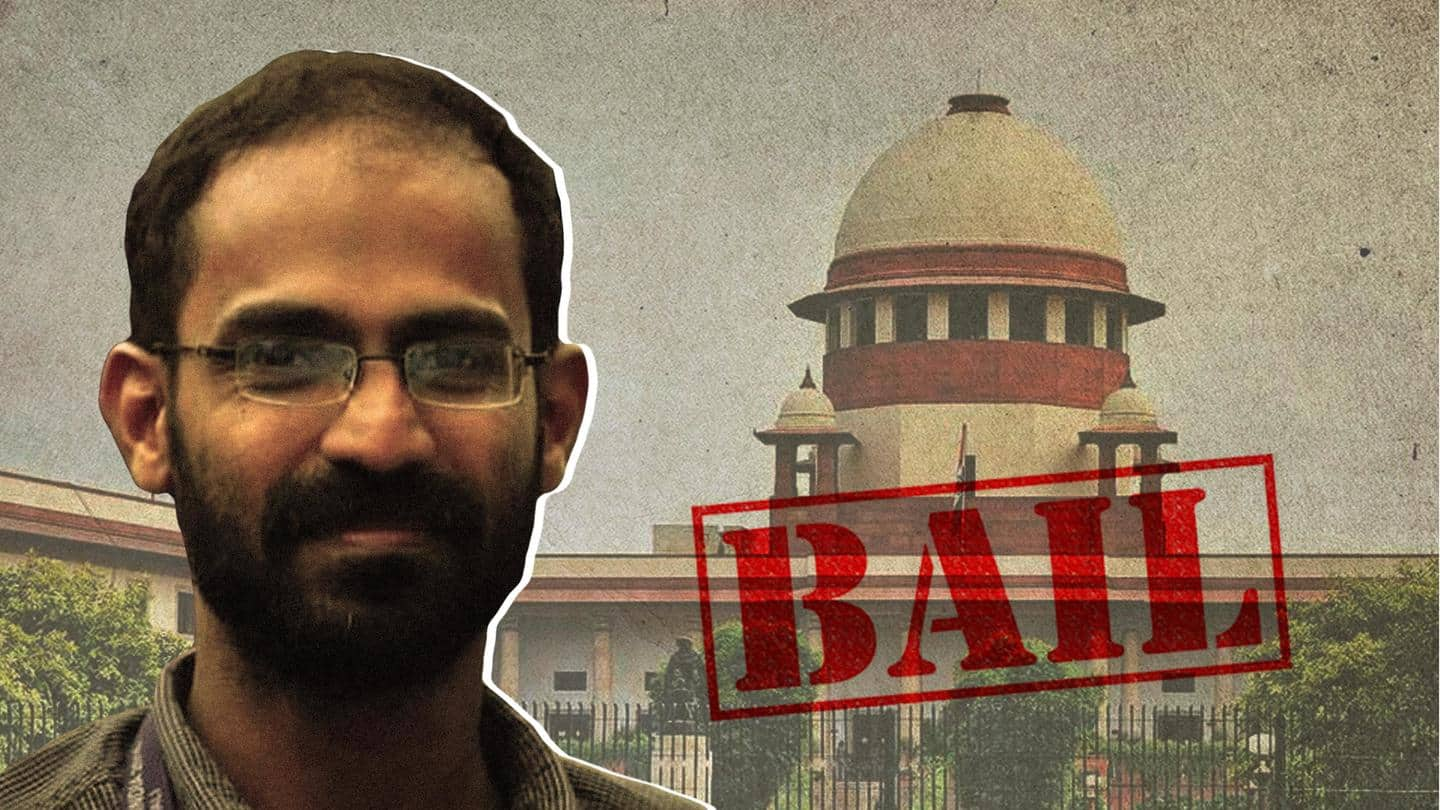
Booked under UAPA, Supreme Court grants bail to Siddique Kappan
What's the story
The Supreme Court granted bail to Kerala journalist Siddique Kappan on Friday.
Kappan was booked under the Unlawful Activities (Prevention) Act (UAPA) by the Uttar Pradesh Police in October 2020 while on his way to Hathras to cover the rape of a Dalit girl.
The bench has asked him to stay in Delhi for the next six weeks.
Here's more.
Order
Kappan can go to Kerala after six weeks
A three-judge bench of Chief Justice of India UU Lalit and Justices PS Narasimha and S Ravindra Bhat issued the bail order on Friday afternoon.
The bench directed the Kerala journalist to be in Delhi over the next six weeks, Live Law reported.
He will be allowed to go to Kerala if he marks his presence in the local police station every week.
Context
Why does this story matter?
Kappan was taken by the UP Police on October 6, 2020, while on his way to Hathras.
Booked under the stringent UAPA for allegedly "conspiring with the Popular Front of India (PFI)", Kappan has spent nearly two years in jail.
Over the period, Kappan has often been denied bail but has maintained that he is innocent and is being framed.
Twitter Post
Kappan was arrested under UAPA in 2020
#BREAKING Supreme Court grants bail to Kerala journalist Siddique Kappan. Asks him to be in Delhi for next 6 weeks and allows him to go back to Kerala after that on conditions like he shall mark his presence with local police station every week and other conditions.
— Live Law (@LiveLawIndia) September 9, 2022
Hearing
UP Police says Kappan has links with PFI
Addressing the court on Friday, the counsel for UP Police said that Kappan had attempted to disturb law and order in Hathras.
Last week, the police accused him of having links with the PFI.
"He was trying to create a riot situation and use explosives...he belongs to the PFI...a terrorist organization," Mahesh Jethmalani, appearing for UP, had said.
Bench
What else did the court say?
The bench questioned the evidence provided by UP Police.
CJI Lalit said, "What was found with Kappan? No explosives were found, the material was not found with him..."
"He is trying to show that victim needs justice and raise a common voice. Will this be a crime in eyes of law," the court questioned, adding that everyone has the right to free expression.